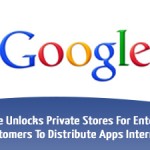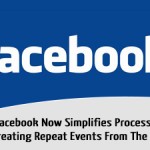
With the move, Facebook is certainly making a play at being the go-to app for not only messaging, but texting as a whole. In fact, the update’s temptation for users should be clear, too: Using Messenger now means freeing yourself from carriers’ SMS stranglehold, which is loosening by the day, anyway.
The social media giant today made a few tweaks to its Messenger feature, allowing Android users to create an account with just their name and phone number. It boasts a far simpler sign-up process that does not even require a Facebook account to sign up for. Those who have a limited texting plan will especially benefit as Facebook Messenger works cross platform so you can message your friends on iOS devices.

Facebook’s new Android Messenger lets people create an account with just their name and phone number. (Credit: Facebook)
Furthermore, explaining the novel features of the release, the company said, Facebook Messenger is basically an instant-messaging network, complete with separate apps to use the service. But with the new capabilities, people only need a phone number, and no Facebook account, said Peter Deng, Facebook’s director of communications product management, at the LeWeb show here.
According to The Next Web reports stating that Facebook’s new Messenger service is being released right on the heels of recent rumors that the social media leader is brooding to acquire WhatsApp, a popular cross-platform messenger. The new Facebook Messenger for Android is essentially WhatsApp so any rumors of an acquisition can finally be laid to rest for now.
Currently, the distribution of the Messenger app will be confined to Australia, India, Indonesia, South Africa and Venezuela, though it should not be long before it makes its way to other countries (and iOS, too). Interestingly the service has no ads and works on a wide array of feature phones and not just higher-end smartphones.
As a matter of fact, this move represents a bold new strategy on the part of Facebook in that it does away with the company’s traditional focus on pushing users to sign up for a standard account, and thus bypasses the myriad casual games and ads users would normally see on its website. Besides, the move is also aimed at attracting new users into its social ecosystem. After all, once users install Messenger, they are not too far from creating a Facebook account as well. You can grab it here when it goes live.


